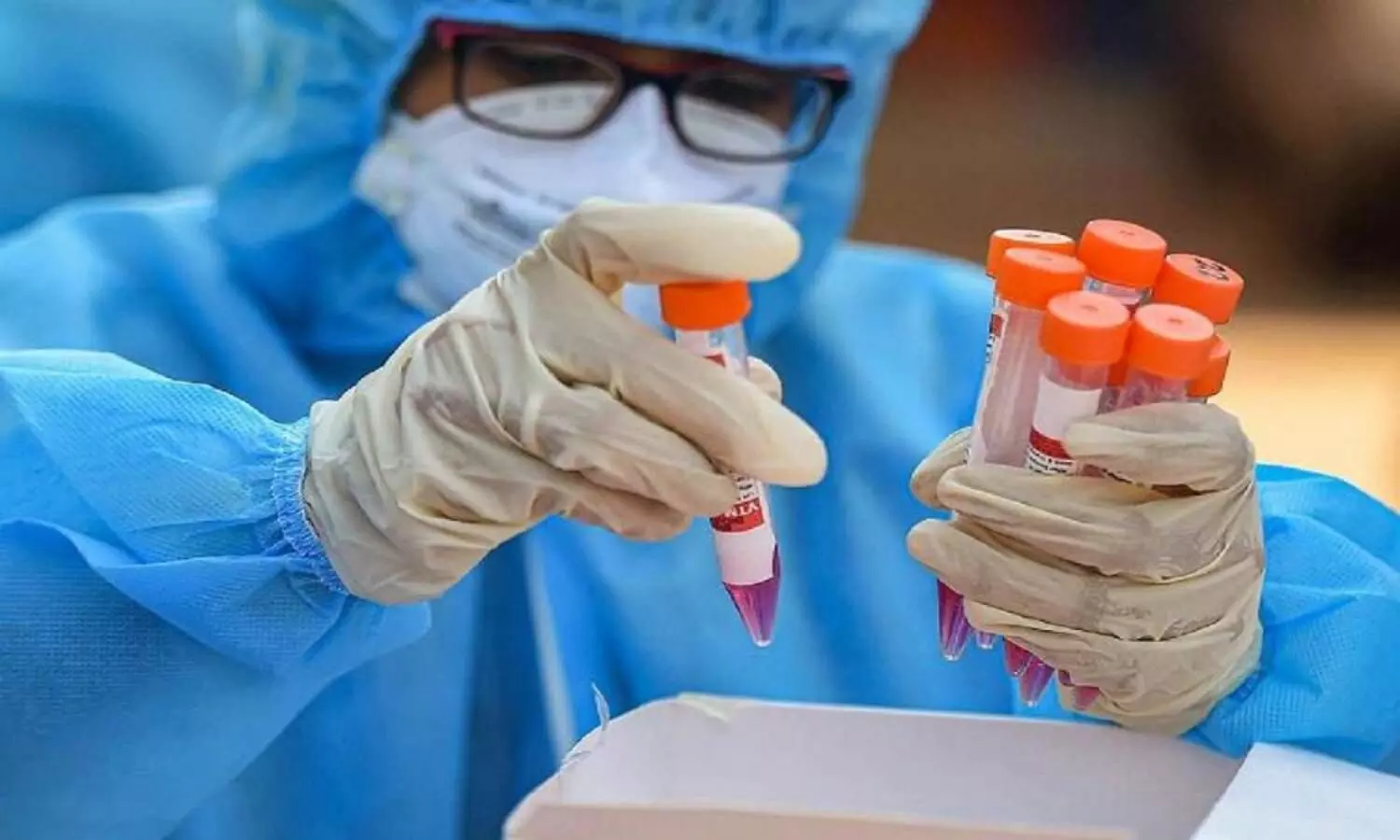67% Indians have developed antibodies against COVID-19: Sero survey
The fully-vaccinated people showed 89.8 percent sero-prevalence while the partially-vaccinated people showed 81 percent sero-prevalence. The unvaccinated population showed 62.3 percent sero-prevalence.
By Newsmeter Network
Hyderabad: Around 67.6 per cent of the Indian population has developed antibodies against COVID-19, the Union health ministry said on Tuesday while releasing the findings of the fourth national sero survey. Meanwhile, nearly 40 crore people are still vulnerable to the virus, it said.
The Indian Council of Medical Research (ICMR) conducted the fourth countrywide survey in 70 districts during June-July and included children between the ages of six-17 years in the survey. The COVID-19 serological surveys analyze the number of people who have antibodies against the coronavirus, offering an estimate of the population that has been exposed to the virus.
The survey had enrolled about 28,975 people from 70 districts in India. Around 2,892 children in the age group of six-nine, 5,799 in the age group of 10-17 years, and 20,284 in the age group of 18 years were enrolled for the survey. Out of the total sample, 5,038 were vaccinated with a single dose while 2,631 were vaccinated with both doses.
The fully-vaccinated people showed 89.8 percent sero-prevalence while the partially-vaccinated people showed 81 percent sero-prevalence. The unvaccinated population showed 62.3 percent sero-prevalence.
"Two-third of the general population had SARS-CoV-2 antibodies and a third of the population did not have antibodies, which means still 40 crore people are in the vulnerable category," Prof. Balram Bhargava, the DG of ICMR, said.
The fourth sero survey shows a similar sero-prevalence in rural and urban areas of the country.
"Our 40 crore population is still vulnerable according to the sero survey. Hence we can't take any risk. We need to be very careful and maintain COVID-appropriate behaviour," said Dr. V.K Paul of NITI Aayog.
The survey has found that more than 50 per cent of children aged six-17 years have been exposed to COVID-19 and have developed antibodies against it.
The highest sero-prevalence was found in the age group of 45-60 years (77.6 per cent), followed by those above 60 years (76.7 per cent) and those in the age group 18-44 years (66.7 per cent).
For the survey, children were divided into two age groups: 6-9 years and 10-17 years. Sero-prevalence in the 6-9 years category was 57.2 per cent and in the 10-17 years category, it was 61.6 per cent.
The ICMR said that the national serosurvey is not a substitute for local (state/district) variations. "State-led sentinel sero-surveillance will inform the further state-level action," said Prof. Bhargava and added that people should travel only if they are fully vaccinated. "The states and districts without antibodies run the risk of infection waves," he said.
Around 7,252 health care workers (HCW) were also included in the survey of which 76.1 per cent was fully vaccinated, 13.4 per cent had received one dose while 10.5 per cent had not received the vaccine. The survey showed 85.2 per cent sero-prevalence.